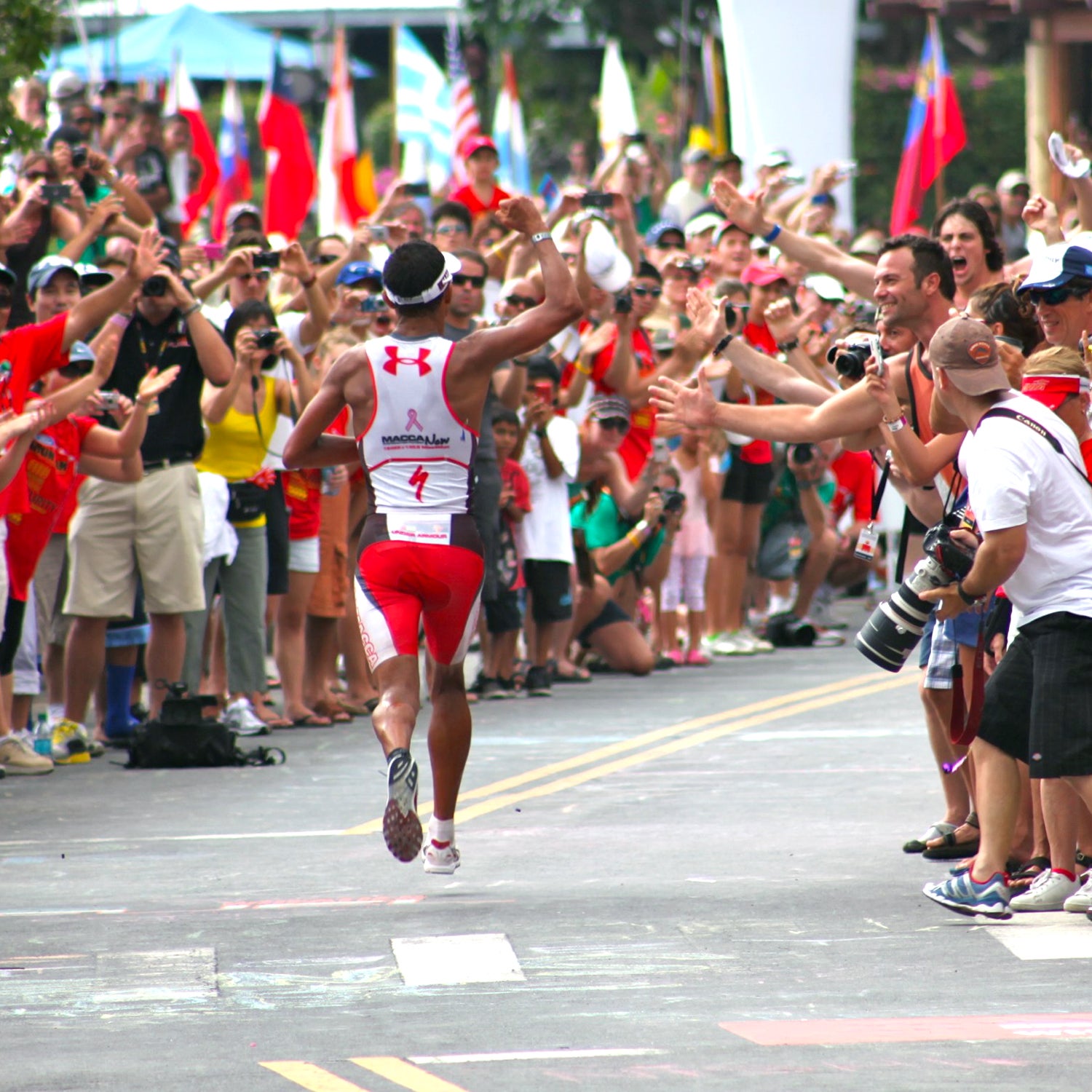Mo Farah is having a stellar year. The Olympic gold medallist runner set a two-mile indoor world record in February and followed up with a European half-marathon record in March. Want to know what’s powering his performance? No fancy training regime or super supplement, just old-fashioned rivalry.
Yup, . And studies have shown harnessing the power of a rival will help you achieve your strongest performance yet, just like Farah. In fact, an itch to beat that guy is an even stronger performance enhancer than competition alone, argues from NYU Stern.
from a U.S. running club. After identifying pairs of rivals, he studied their results. The effect of racing a rival showed improvement by as much as five seconds per kilometre. That’s enough to shave 50 seconds off your next 10K.
“The goal shifts from winning to wanting to beat the other person because of who they are and because of your relationship—it goes beyond the ordinary competitive spirit,” he said. The result: an elevated mental game. “Those tightly-decided contests take on greater significance—they generate greater emotional reactions,” says Kilduff.
“The goal shifts from winning to wanting to beat the other person because of who they are and because of your relationship—it goes beyond the ordinary competitive spirit.”
Ironman and ITU World Champ triathlete, , agrees. His career was fuelled by rivalries with fellow Ironman world champs Normann Stadler and Craig Alexander. “A rival threatens to take something you that you have, or want,” McCormack says. “They’re powerful because you know they can beat you.”
But getting a rival is not as simple as picking out some random guy in a blue shirt to race against. “Not every competitor will be a rival,” Kilduff says. “A rival is someone you have a relationship and a history with.”
More specifically, Kilduff believes the best rivals are are similar; they’re around the same age and have the same background, which leads to more self-comparison.
They’re also evenly matched—so close it’s frustrating. That rings true for McCormack; his greatest rival during his Kona years, Craig “Crowie” Alexander, was his old training partner, whom he knew intimately.
Don’t have a regular training partner, or train alone? Never fear! The power of rivalry is at the heart of several of today’s sports apps, so you can harness it virtually. If you have ever received ’s “Uh oh!” course record stealing message, you’ll be familiar with the motivating rage of virtual rivalries; newcomer , the indoor-cycling game, works by pitting you against friends; and gets the whip-cracking in a similar way, pitting you against a computer runner who’s just a little faster than you.
“Not every competitor will be a rival,” Kilduff says. “A rival is someone you have a relationship and a history with.”
Of course, there are always fitness classes, too. spin classes let you and your classmates transmit your stats, like RPMs and resistance, to a central board everyone can see. And who among us hasn’t peeked at the treadmill stats of the runners to our sides? Treadmill classes at the let you do just that.
Beware, though; rivalry isn’t all PRs and transcendent performances. “You’ve got to keep it positive,” says The North Face Athlete and two-time USATF ultrarunner of the year, .
Just like rivalries can pump you up, they can tear you down if not kept in proper perspective. “Whenever I’ve run against true, spitting rivals, I can’t say I ran my smartest race,” Semick says. “You’re not thinking strategically, you’re in this negative headspace and you’re not in the flow.”
McCormack agrees that a rivalry can be all consuming and force errors. “In my younger days I’d work too hard on the bike to show I was strong or run too fast to show him I was fast,” he says. “More times than not he would catch me at the end.”
Rivalry increases physiological arousal, so it may benefit performance in routine, well-practised activities better than new, precision-based tasks. “It’s possible a professional archer [or triathlete or runner] would benefit from rivalry as they’ve got their craft so well honed, but for someone else who’s taking on the complex task for the first time, it could have a detrimental effect,” said Kilduff.
Kilduff’s most recent research also shows rivalries may take your eyes of the prize – literally. “Offered a choice between two pay offs, either receiving $15 while your rival receives $20, or receiving $10 while your rival receives $8, empirical studies I’m doing show most people will trade absolute financial outcomes to maximise the extent to which they can outperform their rival.”
The results have led him to investigate whether rivalries may underpin unethical behavior—which in sport could lead to cheating or doping in a quest to give your nemesis the bird.
So to avoid the pitfalls of rivalry and revel in its advantages, the experts have a few tips: Keep it positive. Never train against a rival. “You can’t let your emotions get in the way on training day—you need to stick to your plan,” Semick says. “No one’s won anything by winning a training day.” And finally, the best rivalries are with friends, or “frivalries,” as Semick calls them. “Racing against a friend, that’s when you’re really feeling good,” she says. “You may want to win, but you don’t ever feel like you’ve lost.”


